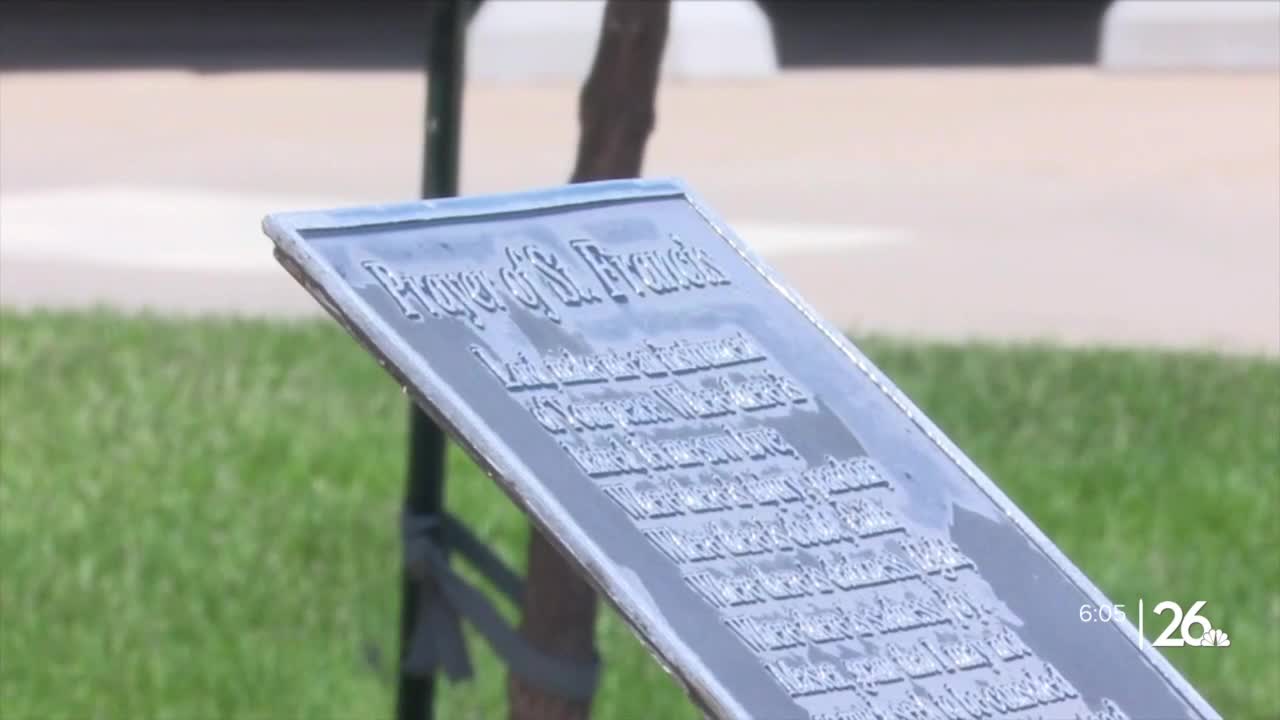GREEN BAY (NBC 26) — When Black Creek resident Drew Grove suddenly began getting headaches two years ago, he initially thought nothing of it.
“It slowly got worse and worse until the headaches were so bad I couldn’t get out of bed, couldn’t go to work, I just slept the whole day," Grove said.
He initially thought the headaches were due to high blood pressure, as he had struggled with high blood pressure in the past. He says he even saw his healthcare provider who agreed that was likely the cause. But it wasn’t until his right leg started to go numb that he realized what he was experiencing was more than just a migraine. He didn’t know it at the time, but he was suffering a stroke.
“I’m 35 years old, I did not think stroke at all and it was actually my wife that said we need to bring you to the emergency room,” Grove said.
In the emergency room, Grove learned he had several blood clots in veins leading to his brain. He was rushed to HSHS St. Vincent Hospital where he underwent a procedure to break up the blood clots. Doctors were successful, but just a few hours later the blood clots redeveloped, forcing him to undergo the procedure a second and third time.
“Somewhere between 6 and 8 hours later, he started having recurrent symptoms and so he was redeveloping this blockage again,” said Dr. Alison Meyer, the medical director of the comprehensive stroke program at St. Vincent, who performed the procedure.
“Dr. Meyer told me the third time that they had to bring me in for the procedure that she didn’t know if I was coming off of her table,” Grove said.
Miraculously, Grove survived. Today, Dr. Meyer calls Grove her miracle patient. She stresses the importance of knowing the warning signs of a stroke, which can be summarized by the acronym "Be Fast":
Balance: Are they losing their balance?
Eye: Are they struggling to make and keep eye contact?
Face: Check for facial drooping and slurred speech from facial drooping
Arms: Raise both arms. Does one arm drop down?
Speech: Are they struggling to speak?
Time: Call 911 right away and seek help immediately.
“Every minute that the brain is deprived of oxygen, a million neurons die," Meyer said. "So the faster you get to us, the more options we have for treatment and the more brain that we can save.”
Meyer says it's crucial that people are aware of the warning signs of a stroke because the majority of the time it's a bystander that has to recognize the stroke and make the call for help.
"Many times they're completely unaware that it's happening, it takes the bystander that's seeing them to raise the awareness," Meyer said.
Today, Grove still has less mobility on his right side and a shake in his right hand. As a father of three, he’s thankful to be alive. He says he's made several changes to his lifestyle, such as changing his diet drastically. He stopped coaching youth sports because of the stress involved and he now prioritizes spending time with family.
"It gave me a whole new outlook on life because at 35 I had a stroke and that could've been done," Grove said. "That could've been it right there. So it put a new perspective on what's important in life."
Grove is now sharing his story to raise awareness that a stroke can happen to anyone, anytime. He has a word of caution for anyone who may experience any of the warning signs.
“Don’t wait. Don’t wait to see if it gets worse, don’t push the limit," Grove said. "Go in and see a doctor because if I would have waited, I wouldn’t be here anymore.”



